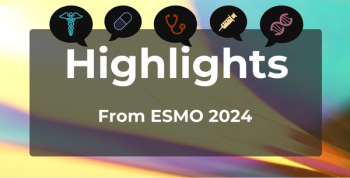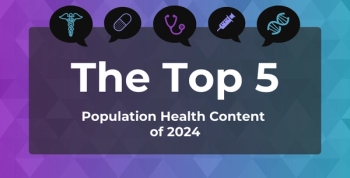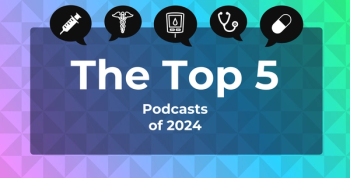
Population Health
Latest News
Latest Videos
CME Content
More News

Life expectancy gaps in the United States have widened dramatically over the past two decades, with disparities across racial, ethnic, and geographic lines reaching a staggering 20.4 years by 2021.

Researchers identified a 15-year shift toward surgical de-escalation in gynecologic oncology, marked by fewer surgical interventions, increased adoption of minimally invasive techniques, and a greater focus on fertility preservation and sentinel lymph node procedures.

Attorneys General from several districts have come together in a lawsuit seeking damages from Walgreens for allegedly knowingly filling opioid prescriptions that lacked a genuine medical purpose.

This marketing decision from the FDA covers 2 nicotine strengths, 3 mg and 6 mg, and 10 flavors of the small tobacco-free synthetic pouches.

Insurer-pharmacy benefit manager (PBM) firms control most of the Medicare Part D market, steering patients to their pharmacies through network exclusions and targeted marketing.

Mutations in one of the first human-isolated strains of H5N1 bird flu in the US were identified by the Texas Biomedical Research Institute.

The study found significant disparities in the exposure to contaminants. Communities with higher percentages of Hispanic and Black residents were not only more likely to have unregulated chemicals in their drinking water, but they were also more frequently located near pollution sources.

The findings challenge the effectiveness of these widely used transitional care interventions and suggest a need for more targeted, multifaceted approaches to address the needs of higher-risk patients.

Men who have sex with men (MSM) can now participate in National Blood Donor Month under the FDA's updated guidelines, marking a crucial step toward addressing blood shortages and promoting inclusivity.

Some populations face significant disparities in accessing lung cancer screening facilities, with American Indian/Alaska Native (AI/AN)-majority and rural census tracts facing the greatest travel distances.

Pediatric patients considered obese at cancer diagnosis are linked to significantly worse survival outcomes, especially those with acute lymphoblastic leukemia and central nervous system tumors.

Between 1988 and 2017, there were significant global variations and trends in ovarian cancer incidence and its subtypes, influenced by genetic, reproductive, and socioeconomic factors.

The European Society for Medical Oncology (ESMO) Congress featured findings on overall survival, disparities, and artificial intelligence in cancer research.

From drug shortages to the approval of a nasal spray flu vaccine, the top population health stories explored critical challenges and advancements impacting the US health care landscape.

The top 5 most-viewed videos of 2024 highlighted advancements in therapies, heart disease screening, pediatric palliative care, medication disruptions, and the role of economic research in health policy.

Here are 5 key points on electronic cigarette use that cover industry marketing methods, harmful substances, associated health risks, regulations, and its links to mental health as well as the COVID-19 pandemic.

The top 5 podcasts for 2024 cover Medicare Advantage prior authorization, health equity, global immunization challenges, trauma-informed care, and health literacy.

Adolescent substance use remains at record lows in 2024, extending declines first observed during the COVID-19 pandemic.

Since its founding in 2012, the National Association of ACOs has evolved from a group of 30 to 477 accountable care organization members covering 9.2 million beneficiary lives.

Inadequate housing significantly impacts public health, leading to various health issues and increased mortality rates.

At an Institute for Value-Based Medicine® event held in Aurora, Colorado, experts discussed strategies to improve patient outcomes and manage health care costs in neurological diseases.

Big Hairy Audacious Goals (BHAGs) can focus our attention and propel needed action to improve total population health, the authors argue.

Strategies to help patients with chronic conditions stay healthy and avoid complications this winter.

Recent surges in FDA and US Department of Agriculture food recalls due to salmonella, Escherichia coli, and listeria outbreaks highlight ongoing food safety challenges and advancements in pathogen detection technology.

National Recovery Month is recognized each year in September, and for 2024, we marked the month with a special podcast and exclusive video series with our Strategic Alliance Partner, UPMC Health Plan.



















